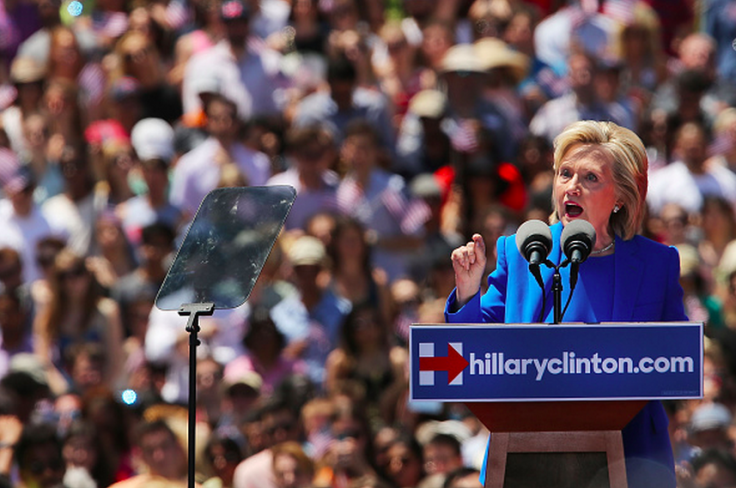New Twitter? Washington Post Taps 'Genius' To Power Live Conversation For GOP Debate

When people want to shout their thoughts to the rest of the Internet, they’ve traditionally turned to Facebook, Twitter, Medium and Reddit. Now there’s a new player for crowdsourcing citizens’ insight into the news, and it just got a major media endorsement.
For the Republican primary debate on Fox News that began at 9 p.m. EDT, the Washington Post published a transcript of the event on its website and updated it as the event continued. The feed went live on the Post's website about 10 minutes into the debate. In addition to seeing the text, readers were able to write comments alongside it and submit them by using the service Genius. Genius was not just a tool for viewers to make comments. Post staffers had access to the feed and used it as a real-time hub for commentary -- which then viewers could further.
The initial commentary was provided by non-Post staffers, selected by the team. The first comment came from Genius user Brian Duricy, who highlighted debate moderator Megyn Kelly's commentary on Cleveland. "Prior to the beginning of the telecast, the anchors played to location, repeatedly name-dropping the Cavaliers and told participants to keep phone noise between 'a LeBron James dunk' and the Cleveland Public Library," he wrote. The commentary received 13 upvotes within a couple of minutes.
The following annotation also came from a non-staffer, Nadia Perl, who shared what she had read about how the debate lineup had been chosen and linked to a USA Today story.
Tonight for the #GOPDebate: @jessicaproud & I will be live annotating the whole thing using @Genius
— Evan Siegfried (@evansiegfried) August 6, 2015.@washingtonpost to use @Genius to annotate entire #GOPDebate tonight at @TheQArena in Cleveland. Follow along here: http://t.co/jZDutQ80Vb
— Dan Gilbert (@cavsdan) August 6, 2015Genius launched in 2009 as “Rap Exegesis” and later “Rap Genius.” The website, founded by Yale University classmates Mahbod Moghadom, Tom Lehman and Illan Zechory, was originally a destination for people to reflect on the meaning behind rap lyrics. The site has undergone some rebranding lately. In 2014, they expanded the company into an annotating tool for other sites.
The Washington Post’s use is not Genius’ first entry into media. In March 2014, former Reuters reporter Felix Salmon tapped into Genius for annotating Federal Reserve chairman Janet Yellen’s first Federal Open Market Committee statement. There, readers could click on highlighted portions of the statement and see more descriptions from the author. They can then comment on that line specifically, upvote or downvote it, share the text to Facebook or Twitter or create an embed code for showing on another site.
Democratic contender Hillary Clinton added Genius to her campaign kickoff speech, where she received over 1,000 submissions. The annotations are visible on her campaign site as well as her personal Genius page. In July, Genius’s team told the Washington Post that they are “reaching out to other politicians to get them on board.”
What was your favorite part of Hillary's official launch speech? Annotate it using @Genius: http://t.co/Gzf423irGB pic.twitter.com/FRlsFGeiN8
— Hillary Clinton (@HillaryClinton) June 14, 2015For now, Post journalists are implementing the tool themselves as a new experiment into collecting content from citizens. Traditionally, journalists have looked to microblogging site Twitter to aggregate reactions. "The idea of community and people's perspectives and ideas are important to us, as well as getting our reported analysis and opinion to weigh in," Cory Haik, the Post’s executive director for emerging news product, told Journalism.co.uk, an online site owned by Mousetrap Media Ltd.
"I think a healthy mix of contributions [from journalists and readers] is what we're really shooting for, so it's just going to be a matter of seeing what comes in,” Haik continued.
Genius, headquartered in Brooklyn, New York, most recently secured a $40 million funding round in July 2014, led by Dan Gilbert and Andreessen Horowitz. That round brings total funding to $55 million, according to Crunchbase. Earlier this week, Genius released its first Android app and launched its redesigned iPhone app and main website.
© Copyright IBTimes 2025. All rights reserved.






















